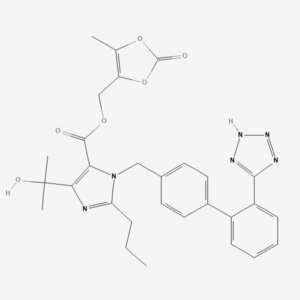When it comes to heart health, prevention is indeed better than cure. Ticagrelor, a revolutionary antiplatelet medication, has gained prominence in recent years for its role in averting cardiovascular events such as heart attacks and strokes. This comprehensive guide delves into the specifics of Ticagrelor, exploring its mechanism of action, applications, potential side effects, and the precautions needed for its optimal use.
TICAGRELOR: AN OVERVIEW
Ticagrelor is an oral antiplatelet drug that falls into the category of P2Y12 receptor antagonists. Antiplatelet agents prevent blood clot formation by inhibiting platelets, the tiny blood cells responsible for initiating the coagulation cascade. Ticagrelor is a key therapeutic agent in managing acute coronary syndromes (ACS) and in secondary prevention post-heart attack.
MECHANISM OF ACTION: TICAGRELOR AT WORK
The human body possesses a sophisticated system to stop bleeding in response to injury – the process of coagulation. In this complex mechanism, platelets play a pivotal role by clumping together to form a clot. While this is crucial for healing wounds, it can pose significant risks when clotting occurs within the blood vessels, leading to heart attacks or strokes.
Ticagrelor works by blocking the P2Y12 component of adenosine diphosphate (ADP) receptors on platelets. This inhibition prevents platelet activation and aggregation, reducing the formation of harmful blood clots inside the arteries.
THERAPEUTIC APPLICATIONS OF TICAGRELOR
TREATING ACUTE CORONARY SYNDROME (ACS)
ACS encompasses a range of conditions characterized by decreased blood supply to the heart muscle. This includes unstable angina, non-ST segment elevation myocardial infarction (NSTEMI), and ST segment elevation myocardial infarction (STEMI). Ticagrelor, in combination with low-dose aspirin, is recommended for patients with ACS to decrease the risk of further heart-related events.
SECONDARY PREVENTION POST-HEART ATTACK
Patients with a history of heart attack are at an increased risk of experiencing subsequent heart events. Ticagrelor is often prescribed in these patients to prevent recurrent heart attacks and strokes, offering a second line of defense against further cardiovascular damage.
SIDE EFFECTS AND RISKS ASSOCIATED WITH TICAGRELOR
Like all medications, Ticagrelor comes with the potential for side effects. It’s important to remember that the decision to prescribe Ticagrelor is made after evaluating the balance between its potential benefits and risks.
COMMON SIDE EFFECTS
The most common side effects of Ticagrelor include shortness of breath, bleeding, bruising, nausea, and an increase in uric acid levels. While these effects are usually mild and subside over time, if they persist or worsen, it’s essential to seek medical advice.
SERIOUS SIDE EFFECTS
More serious side effects of Ticagrelor, although less common, can include severe bleeding, difficulty breathing, slow heart rate (bradycardia), and allergic reactions. If you experience any of these symptoms, seek immediate medical help.
PRECAUTIONS AND CONTRAINDICATIONS
MEDICAL HISTORY
Prior to initiating treatment with Ticagrelor, it’s important to discuss your complete medical history with your doctor, especially any history of bleeding disorders, stroke, recent surgery, or active bleeding.
INTERACTIONS
Ticagrelor can interact with many medications, which can impact its effectiveness or increase the risk of side effects. Make sure to inform your healthcare provider about all the medications, supplements, and herbal products you’re currently taking.
PREGNANCY AND BREASTFEEDING
The use of Ticagrelor during pregnancy should be undertaken only if the potential benefit justifies the potential risk to the fetus. Similarly, breastfeeding mothers should use Ticagrelor only after discussing the risks and benefits with their healthcare provider.
RISK OF BLEEDING
Since Ticagrelor acts as an antiplatelet agent, it can increase the risk of bleeding. Users should take precautions to avoid situations where bruising or bleeding may occur, such as using a soft toothbrush, being careful with sharp objects, and avoiding contact sports.
CONCLUSION: THE ROLE OF TICAGRELOR IN CARDIOVASCULAR HEALTH
Ticagrelor has proven to be an invaluable tool in the arsenal against cardiovascular disease. By reducing the risk of heart attacks and strokes in high-risk patients, it contributes to preserving heart health and extending lives.
However, like any medication, Ticagrelor requires careful consideration of its risks and benefits. Always remember to consult with your healthcare provider, follow their guidance meticulously, and report any side effects promptly. In doing so, you can ensure that you gain the maximum benefit from this ground-breaking medication while minimizing potential risks. With the right approach, Ticagrelor can serve as a vital ally in your journey towards optimal heart health.




